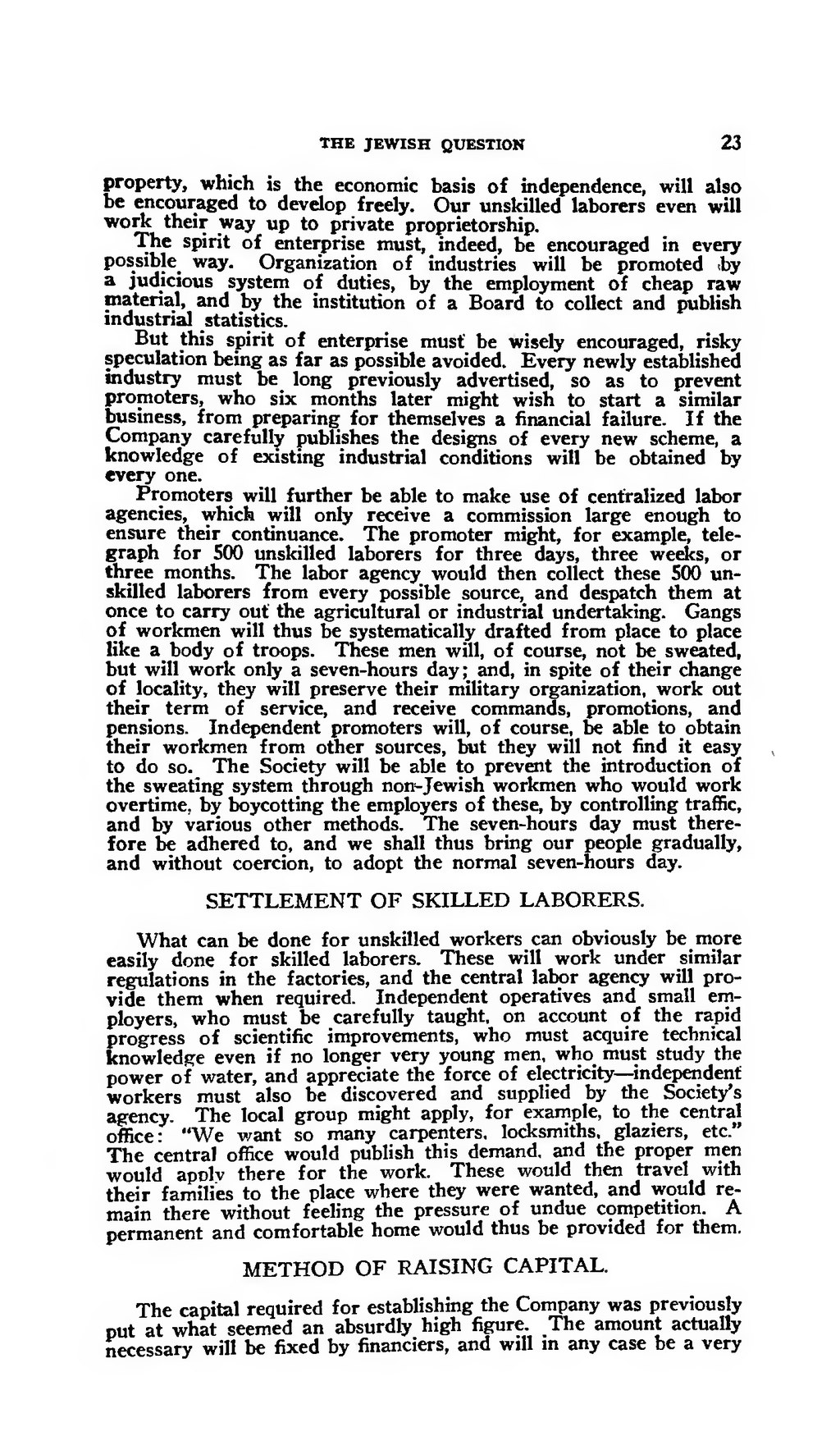property, which is the economic basis of independence, will also be encouraged to develop freely. Our unskilled laborers even will work their way up to private proprietorship.
The spirit of enterprise must, indeed, be encouraged in every possible way. Organization of industries will be promoted by a judicious system of duties, by the employment of cheap raw material, and by the institution of a Board to collect and publish industrial statistics.
But this spirit of enterprise must be wisely encouraged, risky speculation being as far as possible avoided. Every newly established industry must be long previously advertised, so as to prevent promoters, who six months later might wish to start a similar business, from preparing for themselves a financial failure. If the Company carefully publishes the designs of every new scheme, a knowledge of existing industrial conditions will be obtained by every one.
Promoters will further be able to make use of centralized labor agencies, which will only receive a commission large enough to ensure their continuance. The promoter might, for example, telegraph for 500 unskilled laborers for three days, three weeks, or three months. The labor agency would then collect these 500 unskilled laborers from every possible source, and despatch them at once to carry out the agricultural or industrial undertaking. Gangs of workmen will thus be systematically drafted from place to place like a body of troops. These men will, of course, not be sweated, but will work only a seven-hours day; and, in spite of their change of locality, they will preserve their military organization, work out their term of service, and receive commands, promotions, and pensions. Independent promoters will, of course, be able to obtain their workmen from other sources, but they will not find it easy to do so. The Society will be able to prevent the introduction of the sweating system through non-Jewish workmen who would work overtime, by boycotting the employers of these, by controlling traffic, and by various other methods. The seven-hours day must therefore be adhered to, and we shall thus bring our people gradually, and without coercion, to adopt the normal seven-hours day.
SETTLEMENT OF SKILLED LABORERS.
What can be done for unskilled workers can obviously be more easily done for skilled laborers. These will work under similar regulations in the factories, and the central labor agency will provide them when required. Independent operatives and small employers, who must be carefully taught, on account of the rapid progress of scientific improvements, who must acquire technical knowledge even if no longer very young men, who must study the power of water, and appreciate the force of electricity—independent workers must also be discovered and supplied by the Society's agency. The local group might apply, for example, to the central office: "We want so many carpenters, locksmiths, glaziers, etc." The central office would publish this demand, and the proper men would apply there for the work. These would then travel with their families to the place where they were wanted, and would remain there without feeling the pressure of undue competition. A permanent and comfortable home would thus be provided for them.
METHOD OF RAISING CAPITAL.
The capital required for establishing the Company was previously put at what seemed an absurdly high figure. The amount actually necessary will be fixed by financiers, and will in any case be a very
